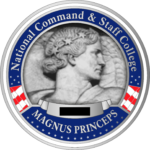Instructions:
- Post a new discussion related to the topics covered in this module. Your post needs to provide specific lessons learned with examples from this module helping you enhance your leadership capacity at work.
- After posting your discussion, review posts provided by other students in the class and reply to at least one of them.

4 Comments
This module covered several foundational skills to help law enforcement leaders develop skills that will allow them to become capable of creating and leading high performing and high morale teams within an organization with the goal of personnel actively participating in the planning and implementation of the organizations mission, vision and goals. When leaders take the time to build trust with their team members, they can begin to help them buy in to the mission statement of who we are and what we do. One of the skills that stood out to me was the informal assessment skills or walking around and talking with people. As leaders move around it is very important for a new leader to walk around and get to know the unit they are now leading and to keep a pulse on how they are doing. I’ve seen some leaders that do this when they first take over and then they fade themselves out, this is something that should be continuously done and is not a “one and done” activity. When officers see their leaders and have the opportunity to interact with them and feel heard this builds trust and loyalty and they are more likely to want to participate with the goals of the department.
As a leader or member of a team, developing strong team and organization development skills is crucial to achieving success. Some of these skills include informal and formal assessments, problem management facilitation, readiness checking, value and vision alignment, and consensus building around mission and purpose.
In addition to these foundational skills, it’s also essential to have expertise in strategic consensus building, implementation planning, and team performance analysis. Continuous learning for continuous improvement is also crucial, as is building accountability across the team.
Overall, developing these skills requires a combination of experience, training, and ongoing practice. Investing in these areas helps ensure your team is well-equipped to navigate challenges, achieve their goals, and continually improve over time.
In today’s highly competitive and dynamic business environment, having a team with strong team and organization development skills is critical to achieving success. Along with the foundational skills mentioned above, leaders and team members should also focus on developing their emotional intelligence, communication skills, and conflict-resolution abilities. These skills are vital in building a positive work culture, enhancing team collaboration, and fostering innovation. Additionally, leveraging technology to streamline team processes and automate routine tasks can save valuable time for more strategic activities. Organizations and teams can continuously develop these skills and leverage technology to achieve higher productivity, innovation, and success.
I agree that it is important to build accountability across the team. Some leaders think this is something that can be achieved immediately but I’ve found that it is something that is an ongoing process that takes some foundation to be truly effective. It is helpful to build a relationship with the team members, get them aligned with the mission, and make sure to strengthen communication between team members and with the leader. As a leader it is good to set an example of accountability by holding ourselves to the same standards and expectations that we hold our people to.